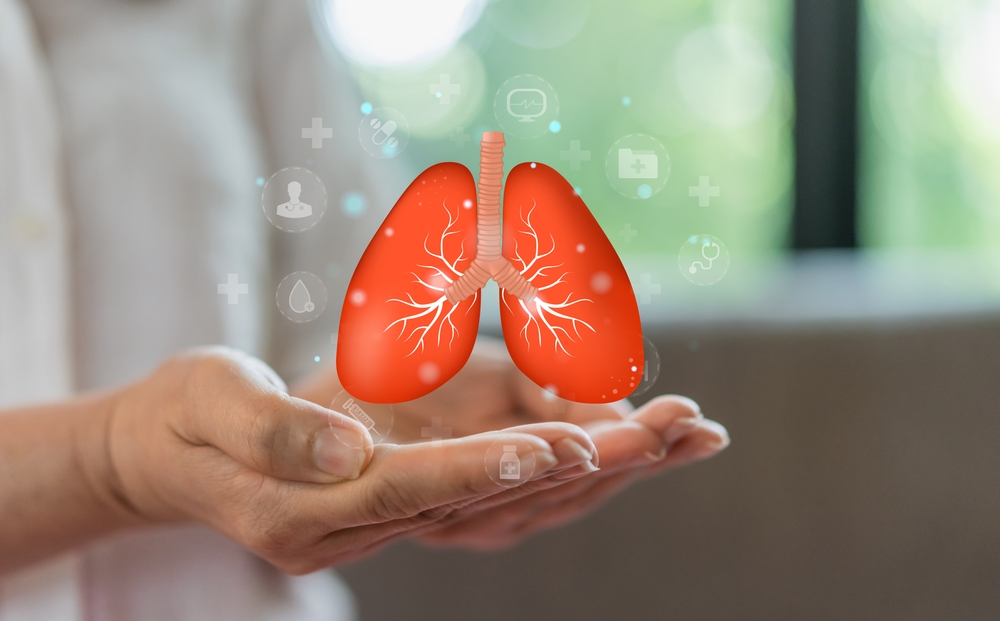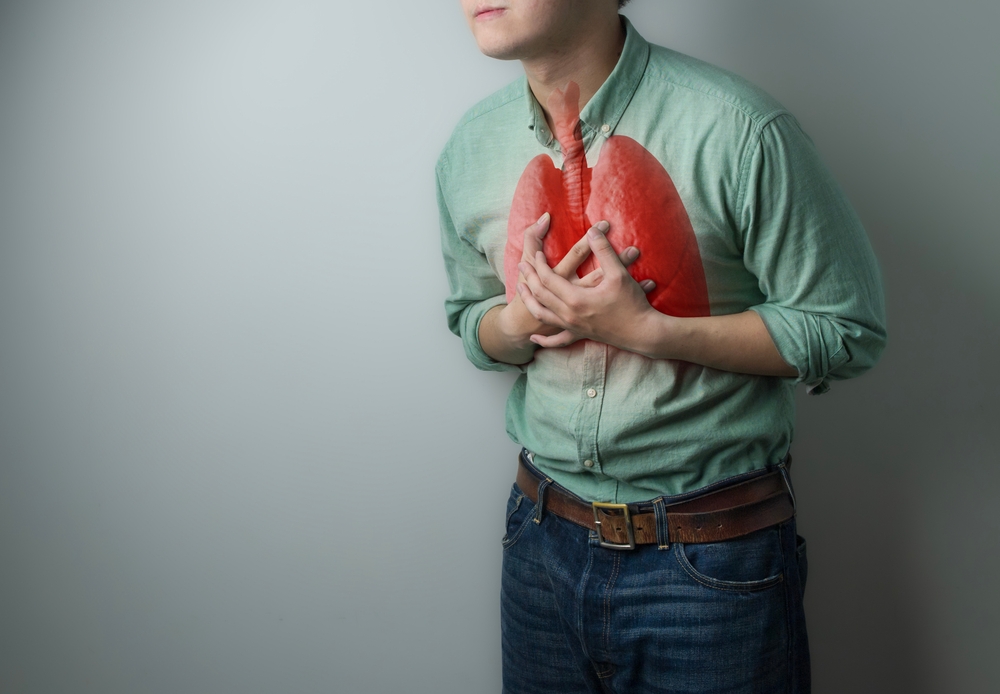Last Updated:
June 10th, 2025
Respiratory Issues Caused by Addiction
There are many scary symptoms of addiction, but respiratory issues are some of the most dangerous. For people using drugs or alcohol, problems like slowed breathing can be subtle at first but deadly if ignored. Some substances irritate your lungs, while others slow down your nervous system, directly affecting your breathing ability. Whatever the case, changes in your breathing should never be brushed off, especially if you’re also experiencing anxiety or withdrawal or are using multiple substances at once. Understanding how drug and alcohol addiction can cause respiratory issues can help prevent permanent damage and even save your life.

What is meant by “respiratory issues”?
Respiratory issues are problems that affect one’s ability to breathe normally. Breathing is something we do automatically, but it depends on many systems working together. These include the lungs, which bring in oxygen; the heart, which pumps it around; and the brain, which controls the rhythm.
When anything disrupts that process, it can cause changes in how you breathe or how your body feels. These changes can be temporary or chronic if the cause isn’t addressed. Symptoms of respiratory issues vary, but they can include:
- Shortness of breath
- A tight chest
- A constant cough
- Wheezing
- Shallow breathing that leaves you feeling constantly tired
These respiratory issues can range from mild to life-threatening. In some cases, you may feel a little breathlessness when you exercise. In others, it can lead to full respiratory failure if your lungs can’t do their job. Whether it’s due to illness, injury or external factors like alcohol or drug addiction, breathing problems should never be ignored.
How does addiction cause respiratory issues?
Different substances affect your breathing in different ways, but many can cause medical emergencies and put your life at risk. Opioids like heroin, morphine, fentanyl, and prescription painkillers are some of the most dangerous when it comes to respiratory issues. They slow down your brain’s control of breathing and, in high doses or when mixed with other depressants, they can cause your breathing to slow to the point of stopping.
Stimulants like crack cocaine or meth can damage your lung tissue, leading to scarring, wheezing and chronic bronchitis. Likewise, cannabis and synthetic drugs like Spice can trigger lung problems, especially in long-term users and those who smoke or inhale the substances. These respiratory issues are often preceded by escalating coughing, shortness of breath and chronic chest tightness, all of which can be worsened by anxiety or panic attacks during substance abuse and withdrawal.
Benzodiazepines can also cause slowed breathing, especially when you are taking them more prescribed, without a doctor’s supervision or in combination with other drugs or alcohol. If you have ever found yourself nodding off or gasping awake after benzodiazepine use, your breathing may already be dangerously affected.
What are some common respiratory issues to look out for?
Addiction-related respiratory issues often build up slowly, and the signs can be easy to miss. But if you are regularly using drugs or alcohol, these symptoms should be taken very seriously:
What are the dangers of ignoring respiratory issues?
The longer you ignore respiratory issues, the more dangerous they become. With opioids and alcohol, the most immediate risk is slowed breathing with some people falling asleep and stopping breathing altogether. In fact, many overdose deaths happen not from a massive dose but from a slow decline in oxygen that goes unnoticed until it’s too late.
Stimulants, especially when smoked, can leave lasting damage to your lungs and scarring, collapsed airways and chronic infections can all set in while you’re still using. Coughing up blood or waking up gasping are common signs that your lungs are severely inflamed or scarred. Ignoring these symptoms can lead to permanent damage that can result in life-threatening conditions.
Whatever symptoms are affecting you, whether it’s a persistent wheeze, pain in your chest or sudden breathlessness, you should seek medical help before it’s too late.

What should I do if I notice respiratory issues in myself or a loved one?
Breathing should never feel like a struggle and if you’re experiencing respiratory issues because of substance use, don’t wait to see if things get better. At Addiction Helper, we help people find the right addiction treatment so they can start breathing easier and avoid fatal consequences. Contact us today and get the help you need.
Our compassionate team are ready and available to take your call, and guide you towards lasting the lasting addiction recovery you deserve.

